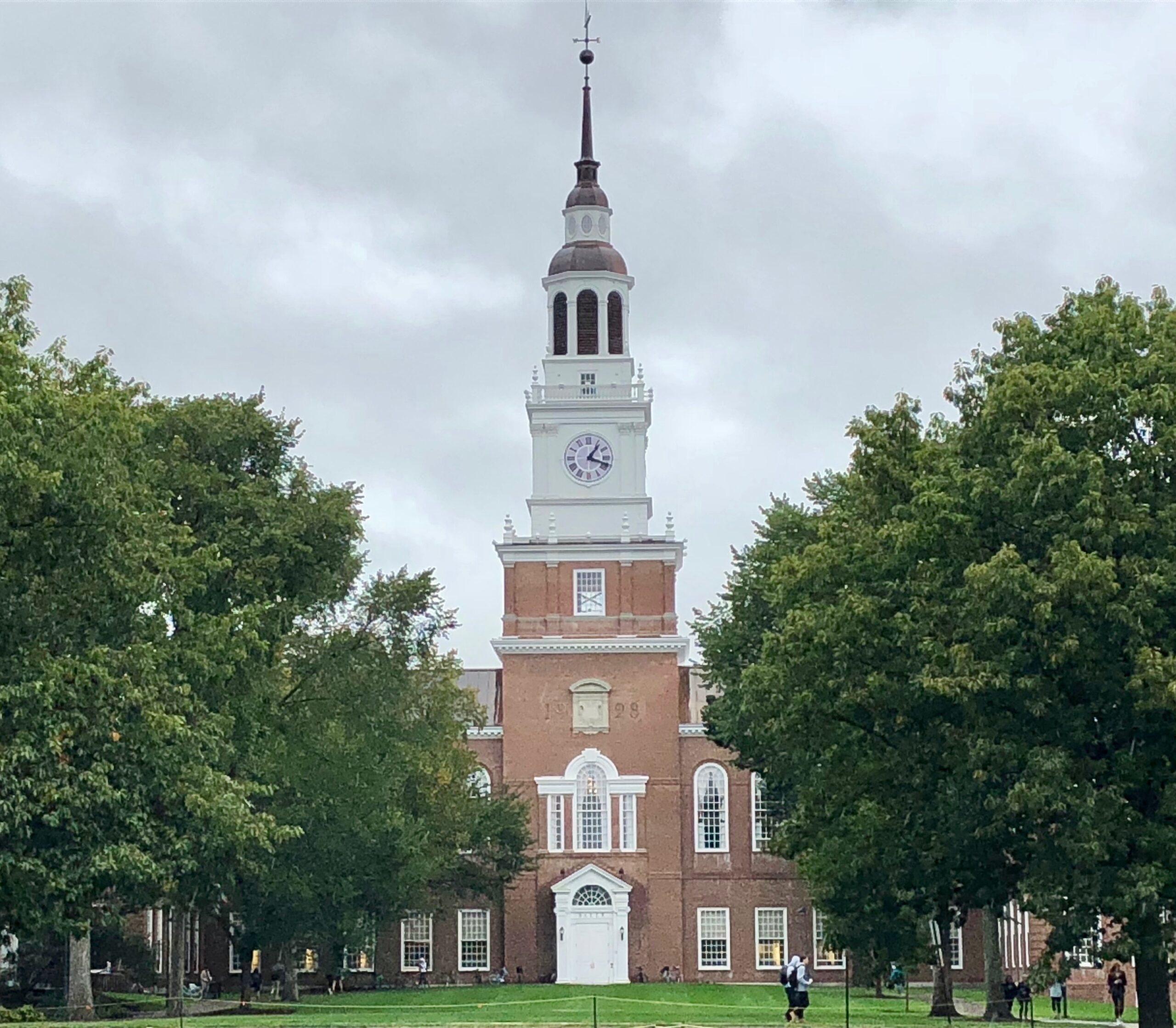Lawsuit: NH Doctors Ignored Guidelines to Push Sex Change on Autistic Patient

“She cannot get back the life that was stolen from her.”
And that’s why Amanda Stewart of Jaffrey is suing her former endocrinologist Dr. John Turco, along with Dartmouth-Hitchcock Health and others, who she says misled her into inappropriate “gender-affirming” surgeries and treatments that left her in pain and have ruined her life.
“Instead of protecting and properly treating Amanda, who was and remains an extremely vulnerable and unstable individual, these doctors and health care providers, and the organizations and facilities at which they worked, harmed her deeply under the pretense of providing so-called ‘gender-affirming care,’” according to the lawsuit filed in Hillsborough Superior Court — South last week.
The suit names Turco, Dartmouth-Hitchcock, St. Joseph’s Hospital, Cheshire Medical Center, Monadnock Family Services, and several individual doctors for years of alleged malpractice Stewart says have “harmed her deeply.”
“She will never be able to conceive and bear a child. Even if she could conceive a child, she would never be able to breastfeed her child. She lives in daily pain from the effects of the unnecessary surgeries and years of taking enormous amounts of cross-sex hormones,” according to the lawsuit. “She will never look the same and has to deal daily with severe alterations to her female body, such as bone structure and unwanted body and facial hair. She cannot get back the life that was stolen from her.”
Josh Payne, with the Texas law firm Campbell Miller Payne, said Stewart wants the healthcare system held accountable for misleading her for more than a decade and changing her life for the worse.
“Amanda’s story is a heart-wrenching representation of the negligence and lack of proper procedure in the practice of so-called ‘gender-affirming care,’” Payne said.
Stewart had a troubled early life, starting when her mother died when she was 14. Stewart, who is autistic, struggled with anxiety, depression, and loneliness throughout her teen years, according to the lawsuit. That was made worse when she ended up in a group home for a period of time, according to the lawsuit.
She started seeing Turco in 2007 when she was 22, and he immediately started pushing gender-affirming care without proper consent or full disclosure of the potential impacts, according to the lawsuit. Start’s lawsuit claims Turco never gave her any other choice.
“Defendants recognized that Amanda was mentally fragile and suffering, such that she would not be an appropriate candidate for so-called gender transition medicalization under any criteria, but they proceeded to medicalize and operate on her anyway,” the lawsuit states. “Indeed, on or about December 11, 2007, Dr. Turco wrote to a counselor Amanda had seen and a primary care doctor for Amanda, stating, ‘I am really worried that [Amanda] does mostly suffer at the present time from some psychological issues other than [her] gender identity issues.’”
But Turco soon had her taking massive quantities of testosterone, bringing her level far above those of biological men, according to the lawsuit.
“[I]n July 2011, Dr. Turco noted that Amanda’s testosterone level was ‘very high at 2,640 ng/dl with the normal adult male range being 241-827,’” the lawsuit states.
 Stewart suffered several mental health crises, some resulting in stays in the New Hampshire Hospital, as her physiological symptoms worsened while taking testosterone, the lawsuit states. Throughout her time with Turco, he made several notes that her symptoms improved when she stopped taking the hormone, and yet he continued to prescribe it in high dosages, according to the lawsuit.
Stewart suffered several mental health crises, some resulting in stays in the New Hampshire Hospital, as her physiological symptoms worsened while taking testosterone, the lawsuit states. Throughout her time with Turco, he made several notes that her symptoms improved when she stopped taking the hormone, and yet he continued to prescribe it in high dosages, according to the lawsuit.
She would go on, under Turco’s care, to get a double mastectomy as well as a hysterectomy and oophorectomy, to remove her uterus, ovaries, and fallopian tubes. She also had a procedure to close her vagina, according to the lawsuit.
Turco is known as a progressive advocate promoting sex reassignment procedures, receiving a “Lifetime Achievement Award” for social justice from Dartmouth last year.
But according to the lawsuit, Turco and other doctors who saw Stewart ignored the medical standards for gender-affirming care, such as the “Benjamin criteria,” which state cross-sex hormones “should not be administered without adequate psychological and medical assessment before and during treatment” and that problems should be well-controlled.
“Yet these criteria were not remotely met in Amanda’s case according to the medical records produced prior to Plaintiff filing this lawsuit. “Amanda was not receiving testosterone with adequate psychological and medical assessment before and during treatment, and her problems were not well-controlled,” the lawsuit states.
These procedures were done without the psychological referrals necessary under the Benjamin criteria standards, according to the lawsuit. In fact, both surgeons who performed the procedures noted her impaired mental state when they saw her prior to the surgeries, according to the lawsuits.
Turco did not begin to question if Stewart was mentally competent to make decisions about her gender until 2016, after years of testosterone treatment and the surgeries. That was when Stewart had stopped taking the testosterone and stopped identifying as a man.
“Dr. Turco also noted that Amanda was not then living as a ‘transmale.’ Dr. Turco noted his belief that Amanda’s ‘underlying psychological issues’ made it ‘very hard for [her] to understand, evaluate and implement exactly what is [her] gender identity.’ Despite these observations, Dr. Turco continued to prescribe testosterone to Amanda,” the lawsuit states.
None of the doctors or counselors who saw Stewart questioned the care until she saw psychologist Dr. Carey Bluhm in 2019. At the time, Turco and staff at Dartmouth were pushing her to get more surgery.
“Dr. Bluhm expressed to Dr. Turco’s office his concerns that Amanda had Asperger’s and admitted to having ‘delusional events.’ Dr. Bluhm also expressed ‘reservations’ about additional plastic surgery procedures Dartmouth-Hitchcock staff had been meeting with Amanda about,” the lawsuit states.
Turco began acknowledging in 2021 that Stewart is, in fact, a woman despite the surgeries. In 2022, after she was taken to the hospital with suicidal ideation, Turco noted the testosterone treatments had “complications.”
Dartmouth Health did not respond to a request for comment.






